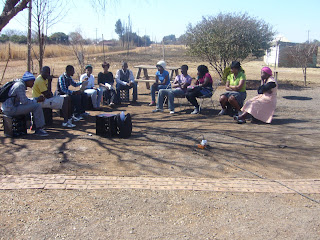Air Quality
Sasolburg, Vanderbiljpark, Vereeniging and Meyerton are situated a number of kilometers to the north and the southeast of the of the most pollution sources such as mining, coal power stations, steel company , coal burning from the households and oil refineries. Vaal Triangle air quality is generally considered to be poor as a result of the multitude of industrial pollution sources and dust from cultivated agricultural land.
In winter local air quality is likely to be affected by stable climatic conditions that hamper pollution dispersion and dry conditions that promote dust formation. Dust from agricultural lands is likely to be worst in August-November when farmers till the soil prior to planting.Additionally, it’s believed that the area needs some kind of specific action in order to ameliorate the problem.
As of now, Vaal Triangle has been identified as one of the national air pollution hot spots according to the National Environment Management Air Quality Act 2004 (Act No. 39 of 2004) (AQA). In effect, the area’s called the “Vaal Triangle Air shed Priority Area”. In response, the National Department of Environmental Affairs and Tourism (DEAT) are now implementing a variety of different interventions for the improvement of the air quality within the area of Vaal Triangle. Some of the interventions involve the creation of a Priority Area Air Quality Management Plan (AQMP). The plans development relates to the provisions as specified by the AQA.
A priority area refers to an area believed as having poor air quality or a situation believed as potentially causing problems in the future. In addition, it may relate to something that exists within the area, either currently found causing or could cause a negative impact to occur on the air quality within the area. Additionally, it’s believed that the area needs some kind of specific action in order to ameliorate the problem.
One of the major reasons regarding the Vaal Triangle selection as an area of priority has to do with air quality considered extremely poor. In essence, people living within the area cannot breathe air that has harmful effects on the well-being and health. Additionally, people suffer from a high amount of respiratory problems. Some of the problems consist of wheezing, asthma, as well as early morning coughing. Further studies have identified the need for Vaal Air Shed Area to start establishing a relation between our poor Air Quality Management to the health of the individuals who live within the area.
Ultimately, Air Quality Management implementation Plan was developed as a monitoring tool for the improvement of the air quality. In addition to that a multi-stakeholder forum consisting with community based organisation, government and business established to make sure the process is effective and achievable.
 Most importantly the plan aims at the reduction of number of human and environmental health risks, while reducing the amount of emissions in a cost effective manner. In addition, they aim to empower the local municipalities, along with other national and government agencies to help them with meeting the outlined materials within the Air Quality Act.
Most importantly the plan aims at the reduction of number of human and environmental health risks, while reducing the amount of emissions in a cost effective manner. In addition, they aim to empower the local municipalities, along with other national and government agencies to help them with meeting the outlined materials within the Air Quality Act.We as Vaal Environmental Justice Alliance we are calling for government and industries to be transparent, communicate and inform us in any decision making process.
Article written by Lebohang Mokoena, me,member of Air quality and Climate Change Team



















